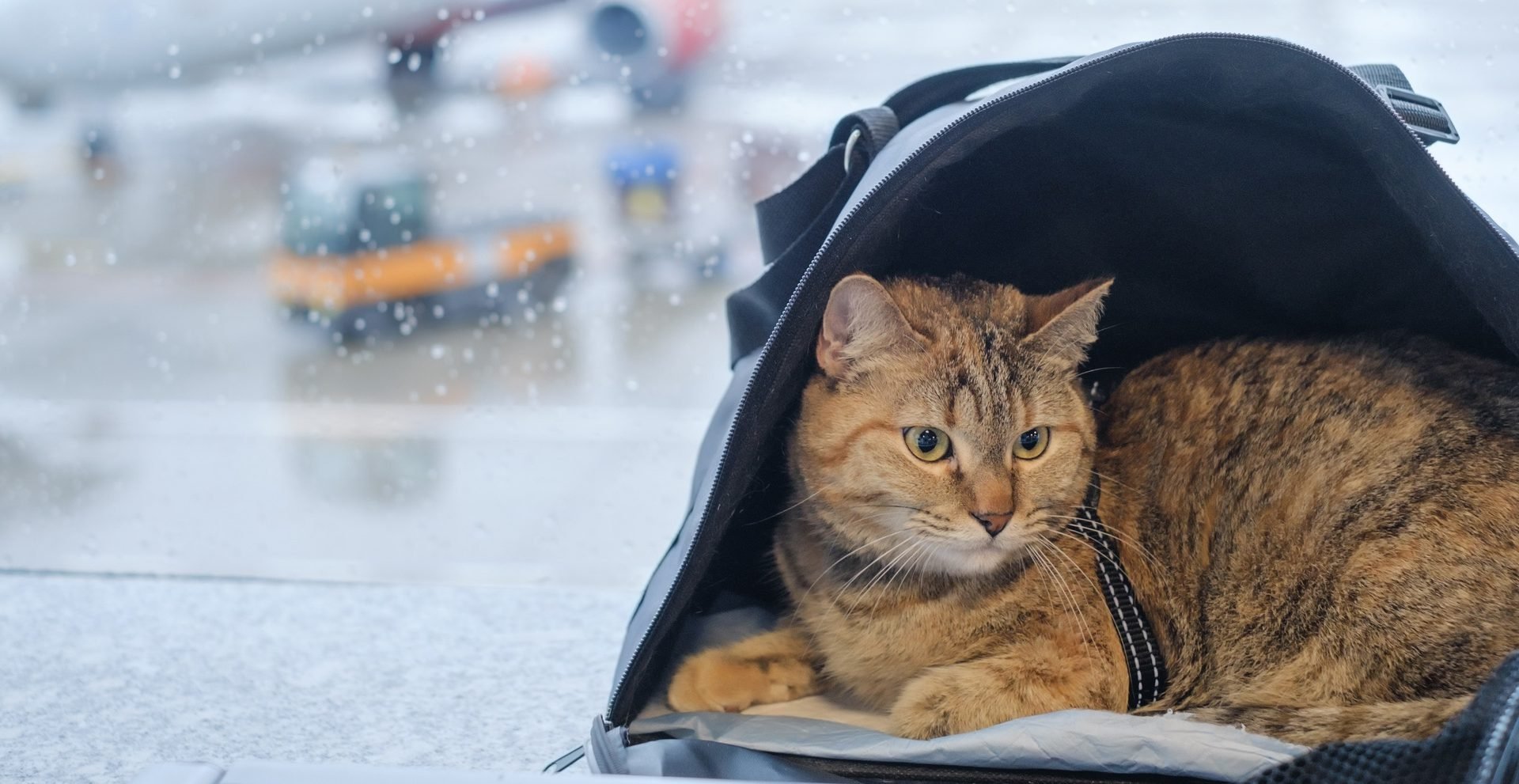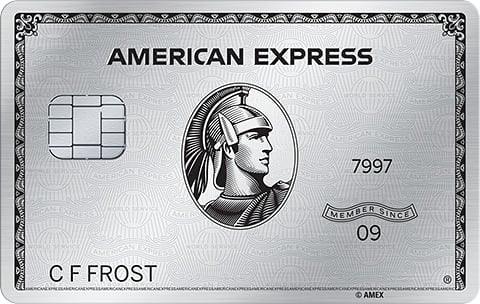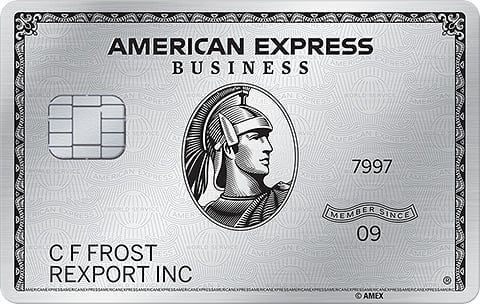How to Take Your Cat on a Plane
Depending on your cat's size, it can either fly in the cabin with you or as cargo, but you may incur fees.

Many or all of the products on this page are from partners who compensate us when you click to or take an action on their website, but this does not influence our evaluations or ratings. Our opinions are our own.
Taking a cat or kitten along on a commercial flight can seem like a straightforward idea, but the logistics can mount. You'll likely face additional costs, not to mention documentation requirements and other rules, which can vary depending on the airline.
With some research and preparation, both you and your kitty can fly safely and in comfort. The rules are much the same as when flying with a dog, but as with canines, you should still talk with your vet and your airline ahead of time.

Know your cat's travel options
In the cabin ...
If a pet in its carrier can fit under the seat in front of you, it typically can travel in the cabin. Generally, that means a pet weighing up to about 20 pounds — an easier hurdle to clear for cat owners than dog owners.
Under-seat space differs among airplanes, which often limit how many total pets are allowed on a flight. That's why you should check with the airline. Buying an extra seat for your cat isn't allowed. Traveling with a cat this way, essentially as carry-on luggage, usually costs less than if it travels in the belly of the plane. Note: A cat in its carrier counts as your allowed carry-on bag.
Get the 'Cheat Codes' to Cheaper Travel
Unlocking the secret to saving a ton on travel is easier than you think. 📤 Our free newsletter shows you how in 5 min. or less.

... Or as cargo
The other choice is flying your cat as cargo in a pressurized, temperature-controlled compartment. Cats can fly this way either as checked bags on the same aircraft as you, or unaccompanied as shipping cargo. There may be shipping timelines to consider if the cat travels as unaccompanied cargo, so check with your airline for details.
Some animal rights groups, including the Humane Society of the United States, recommend against traveling with your cat anywhere but the cabin if it can be avoided — and not all airlines allow cats to be transported as cargo.
You could also opt to use a pet shipping company. The International Pet and Animal Transportation Association may be able to help.
Understand the costs of each
Even though you can't buy an extra seat for your cat, you’ll still have to make a reservation for it.
Several of the biggest airlines in the U.S. charge $125 each way for an in-cabin cat. However, fees are somewhat less on other airlines like Delta ($95). Often, you pay the fee when you get to the airport on the day of flying.
Because your in-cabin cat counts as a carry-on, you might have to pay to check your roll-aboard bag. Pets that fly as cargo often cost more.
Other costs can include a pre-flight veterinary visit and buying a pet carrier.
Research health requirements, other rules
Have your veterinarian examine your cat to make sure it is healthy enough to fly by plane. If you’re checking your cat as cargo, note that some breeds are restricted by some airlines. For example, American Airlines doesn’t allow snub-nosed brachycephalic cats of any mix, such as Burmese, Persian and Himalayan, for fear of respiratory distress at high altitudes.
You might need to obtain a health certificate from a veterinarian several days before you fly, according to airline industry group Airlines for America.
There are various other rules and regulations to be aware of, depending on your airline. For instance, airlines may apply further restrictions no matter how the cat flies, whether cabin or cargo. United Airlines, for example, requires kittens to be at least 2 pounds or 10 weeks old. Check your airline's website to learn more.
Consider the carrier
Most airlines require that the carrier your cat rides in (sometimes called a crate or kennel) be large enough for your contained cat to stand up and turn around. But some airlines also have maximum size and occupancy limits, which they list on their websites.
Regardless, let your cat get used to its carrier before the flight. Airlines for America also suggests that you line the floor with bedding or absorbent material, that you add your contact information to the kennel, and that you indicate with arrows or writing which side should face up.
International flights
Flying internationally with your cat can be more complex and require more planning. Some airlines, like Southwest, don't let pets fly on international flights.
If your cat is allowed, you might need an international health certificate, and you must comply with the requirements of your destination country. The U.S. Department of Agriculture’s Animal and Plant Health Inspection Service lists regulations by country.
If your cat is an emotional support animal
If your cat is an emotional support animal, you likely won't get any special treatment, and you'll likely still have to pay applicable pet fees. A 2021 policy update from the U.S. Department of Transportation, or DOT, says that emotional support animals are no longer considered service animals, and airlines aren't required to treat them as such.
That means if your cat is an emotional support animal and was previously allowed on airplanes, there's no guarantee it will still fly for free (and it likely won't fly for free). All the major U.S. airlines no longer recognize emotional support animals as service animals and now charge pet fees, which can range from $95-$125 or more one-way.
Tips for flight day
Check-in
Arrive at the airport early on the day of your flight and check in at the ticket counter with your cat if it’s flying in the cabin. If it’s flying as cargo, check with your airline about where to drop it off, since the cargo location could be at a different airport terminal.
Security screening
When going through airport security screening, the cat's carrier goes through the X-ray machine, while you leash your cat and carry or lead it through the metal detector. Consider membership in TSA PreCheck, which allows you to use quicker lines where you don't have to remove your belt and light jacket.
Again, keep in mind that details of pet policies vary among airlines. It’s best to check directly with your airline when planning a trip to ensure you and your cat arrive at your destination safely.
Best credit cards for flying with pets
There aren't any travel credit cards that include specific benefits for flying with pets, but there several that offer airline incidental credits that can be put towards any fees charged for pet travel.
Annual fee
$895.
$895.
$550.
$95.
Airline incidental benefit
Up to $200 annually with your preferred airline. Enrollment required. Terms apply.*
Up to $200 annually with your preferred airline. Enrollment required. Terms apply.
Up to $250 annually with your preferred airline. Enrollment required. Terms apply.
Up to $100 annually.
Still not sure?
Airline pet policies
To view rates and fees of the American Express Platinum Card®, see this page.
To view rates and fees of The Business Platinum Card® from American Express, see this page.
All information about the Hilton Honors American Express Aspire Card has been collected independently by NerdWallet. The Hilton Honors American Express Aspire Card is no longer available through NerdWallet.
*More from American Express
American Express relies on airlines to submit the correct information on airline transactions to identify incidental fee purchases. If you do not see a credit for a qualifying incidental purchase on your eligible Card after 8 weeks, simply call the number on the back of your Card. Qualifying airlines are subject to change. See terms & conditions for more details
How to maximize your rewards
You want a travel credit card that prioritizes what’s important to you. Here are some of the best travel credit cards of 2026:
- Flexibility, point transfers and a large bonus: Chase Sapphire Preferred® Card
- No annual fee: Wells Fargo Autograph® Card
- Flat-rate travel rewards: Capital One Venture Rewards Credit Card
- Bonus travel rewards and high-end perks: Chase Sapphire Reserve®
- Luxury perks: American Express Platinum Card®
- Business travelers: Ink Business Preferred® Credit Card
Article sources
NerdWallet writers are subject matter authorities who use primary,
trustworthy sources to inform their work, including peer-reviewed
studies, government websites, academic research and interviews with
industry experts. All content is fact-checked for accuracy, timeliness
and relevance. You can learn more about NerdWallet's high
standards for journalism by reading our
editorial guidelines.
Limited Time Only: Earn $1,000 Toward Travel!
Capital One Venture Rewards Credit Card 
Travel

For a limited time, the
Capital One Venture Rewards Credit Card is offering new cardholders an especially rich bonus: Enjoy $250 to use on Capital One Travel in your first cardholder year, plus earn 75,000 bonus miles once you spend $4,000 on purchases within the first 3 months from account opening - that’s equal to $1,000 in travel!
More like this
Related articles










